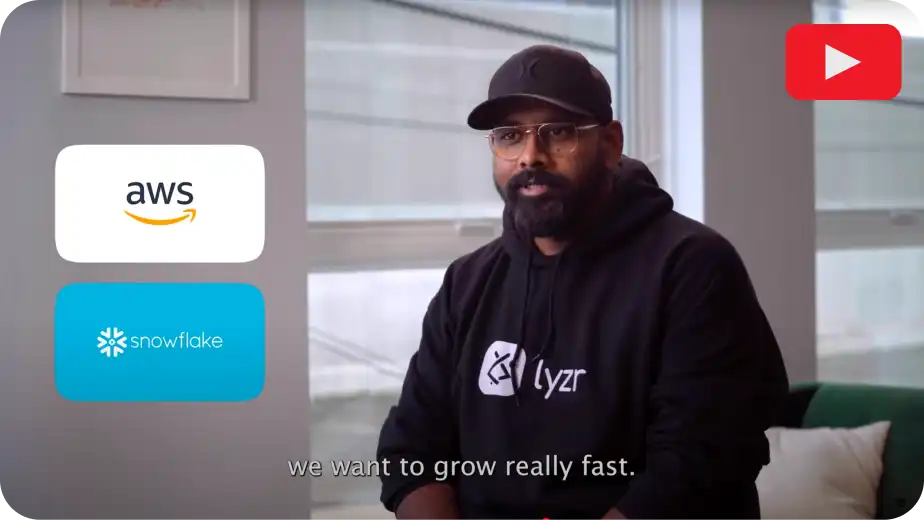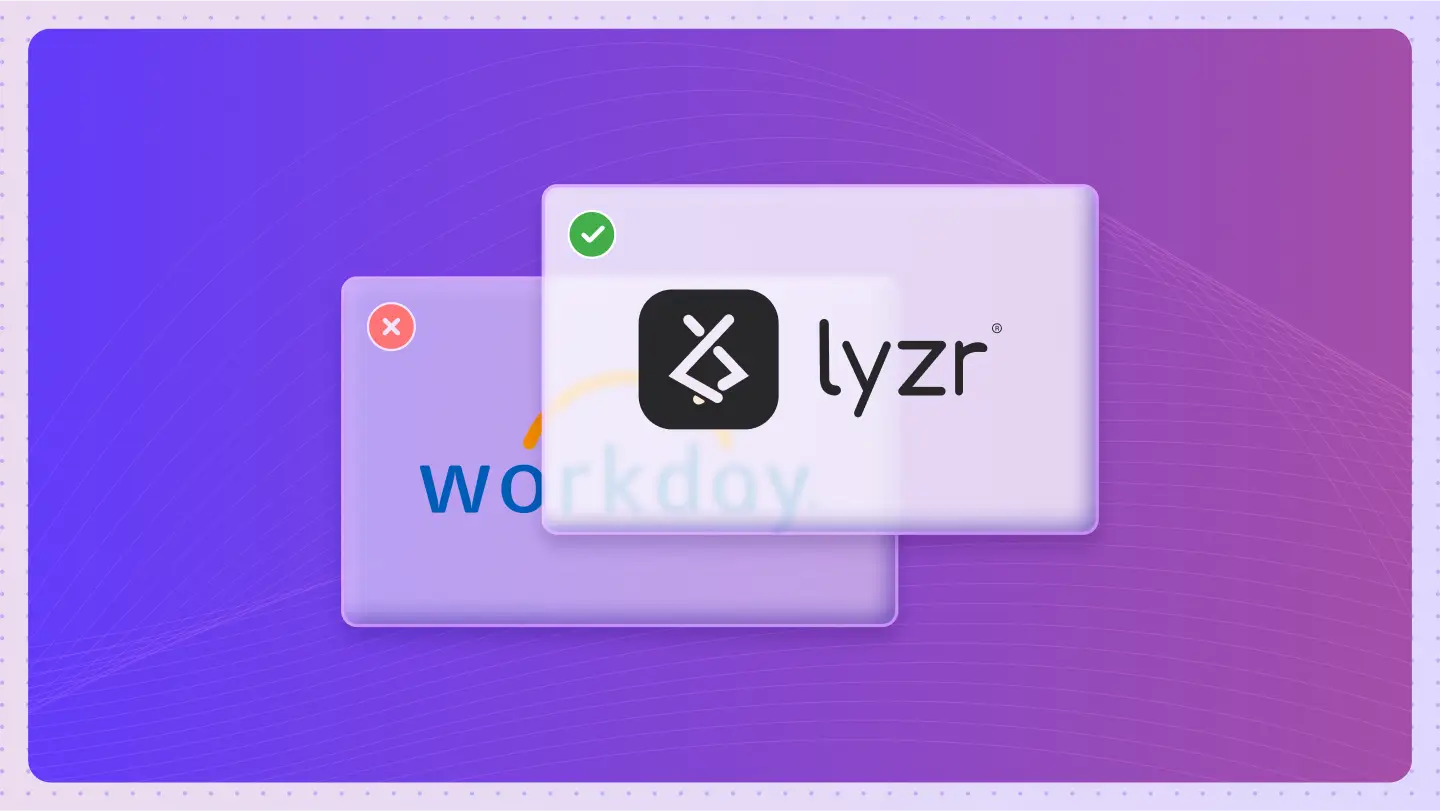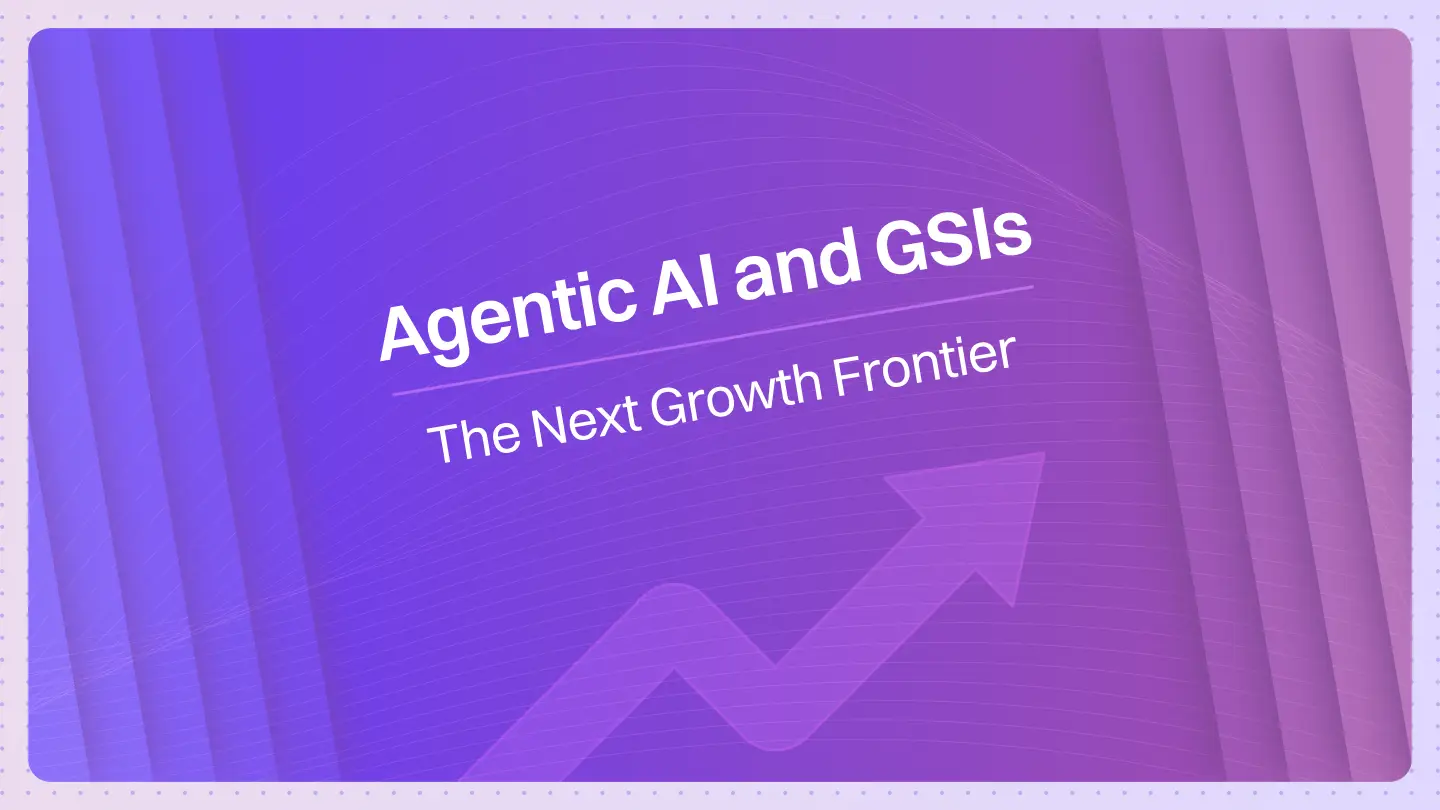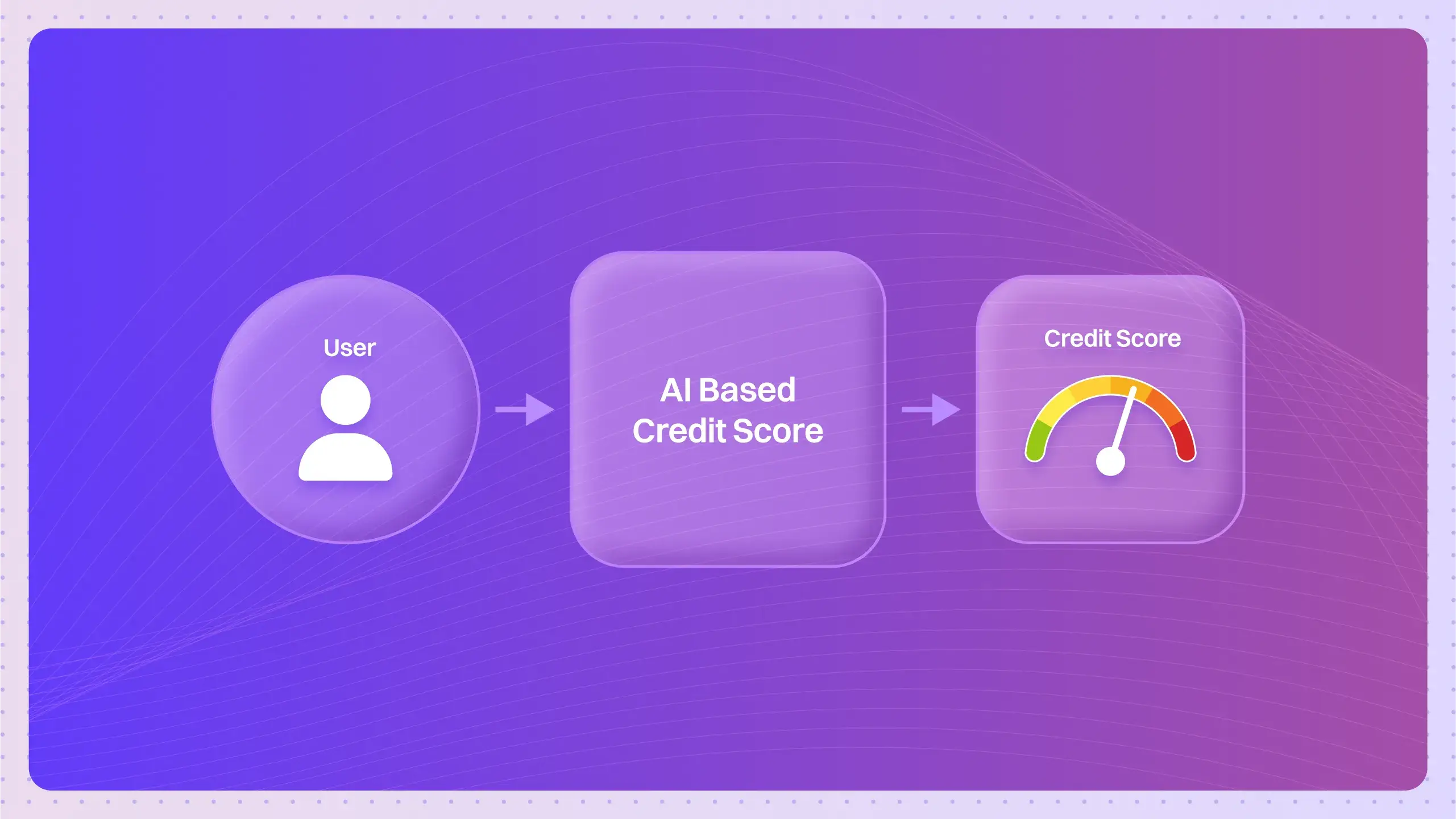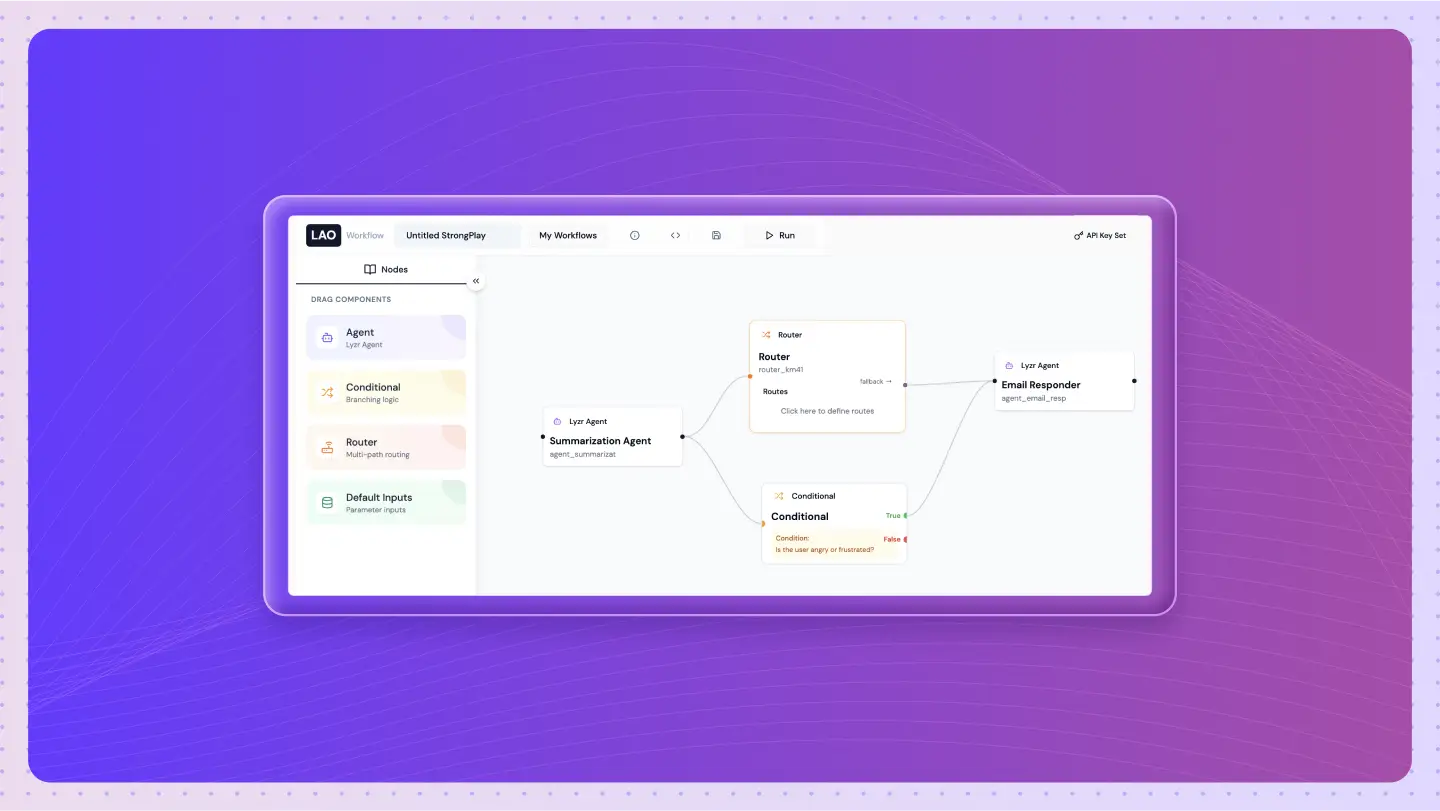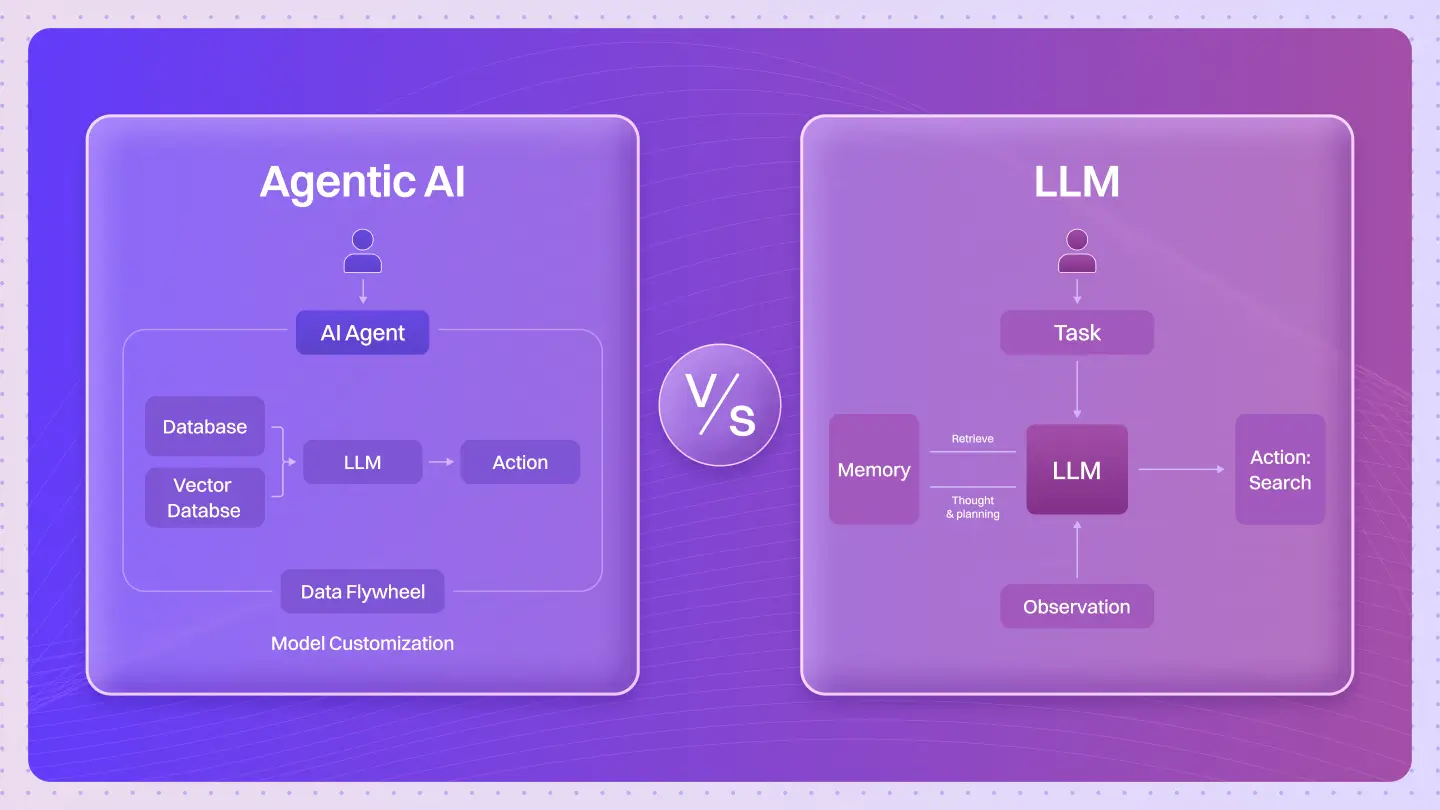Table of Contents
ToggleGlobal System Integrators (GSIs) are at a pivotal moment in their evolution. The business landscape has already shifted from traditional IT services to cloud-first transformation, and it is now moving further into intelligent, outcome-driven solutions. Clients no longer just want tools that “work” or projects that “deliver.” They want agility, measurable value, and innovation that scales across their enterprise.
At the heart of this shift lies Agentic AI. This is not about simple chatbots or rule-based automation. It is AI that is autonomous, collaborative, and adaptable, AI that doesn’t just respond to commands, but actively orchestrates complex workflows across multiple systems, applications, and teams.
For GSIs, this isn’t just another shiny technology trend. It is a once-in-a-decade opportunity to:
- Differentiate their service offerings in a crowded market
- Deepen long-term client relationships by embedding intelligence into every process
- Drive measurable business outcomes that strengthen trust and open new revenue streams
Why Agentic AI Matters to GSIs
Most AI deployments we see today remain narrow. They automate isolated tasks, like answering customer queries or generating reports. Useful, yes, but hardly transformative. These solutions often operate in silos, leaving the larger enterprise processes untouched and creating only incremental gains.

Agentic AI changes that paradigm. It enables:
- Multi-agent orchestration, where multiple specialized agents coordinate seamlessly, handling everything from research and analysis to execution and reporting.
- Autonomous decision-making, with AI that can prioritize, route, and act on information without waiting for human intervention at every step.
- Scalable insights, where agents continuously learn, adapt, and improve over time, ensuring that outcomes only get better as systems evolve.
For GSIs, the implications are huge. Agentic AI shifts the conversation from one-off automation projects to ongoing business transformation partnerships. Instead of building tools that solve yesterday’s problems, GSIs can deliver ecosystems that anticipate tomorrow’s challenges.
Differentiation Through Agentic AI
The GSI market is competitive. Many firms sell similar consulting packages, migration services, and managed offerings. What sets one apart from another is rarely the “what” but the “how.” Agentic AI creates an entirely new layer of differentiation.
Consider how GSIs can use Agentic AI to move up the value chain:
- Embedding AI agents directly into client workflows. Instead of deploying bots to handle one task, GSIs can build autonomous agents that handle entire processes, say, supply chain monitoring, where agents track shipments, adjust procurement schedules, and even trigger financial workflows.
- Shifting from consulting projects to outcome-based engagements. Instead of delivering a solution and stepping away, GSIs can promise measurable improvements, faster approvals, reduced costs, shorter cycle times—because agents can continuously run, monitor, and optimize.
- Integrating with enterprise systems at scale. Many enterprises run SAP, Salesforce, Workday, or Oracle. Agentic AI doesn’t replace these platforms, it enhances them. GSIs can build agents that plug directly into these environments, making them smarter and more connected.
By positioning Agentic AI as a core capability, GSIs can move from being seen as implementation partners to strategic co-innovators who sit at the center of enterprise transformation.
Deepening Client Relationships
Winning new clients is tough. Retaining and expanding existing ones is even harder. Agentic AI creates opportunities for GSIs to stay embedded in a client’s operations far beyond the initial project.
This happens because Agentic AI doesn’t just automate, it learns and collaborates. Clients begin to see these AI agents not as tools, but as active partners in their workflows. This unlocks:
- Predictive operations. Instead of reacting to issues, agents flag risks before they become problems. A supply chain agent might detect a shipment delay in Asia and proactively reroute sourcing, saving millions.
- Intelligent collaboration. Agents can connect siloed departments. For example, a finance agent can coordinate with an HR agent during workforce planning, ensuring budgets align with hiring timelines.
- Continuous improvement. Unlike a static system, agents evolve. The more they run, the more efficient they get. Clients don’t just see one-time benefits, they experience compounding gains over time.
This kind of value cements GSIs as long-term partners. They’re no longer just implementing systems; they’re co-pilots in the client’s transformation journey.
Realizing the Opportunity
Of course, opportunities don’t capture themselves. GSIs that want to lead in Agentic AI must make deliberate moves today. That means focusing on four priorities:
- Building orchestration capabilities. Develop frameworks for multi-agent coordination that can be customized for different industries, from banking to healthcare to retail.
- Demonstrating business impact. Move beyond technical demos. Show clients the dollar value—cost savings, reduced time to decision, improved compliance—that Agentic AI delivers.
- Integrating seamlessly. Build connectors to existing enterprise systems so agents can embed into workflows with minimal disruption. The less friction for clients, the faster adoption will scale.
- Advising as well as implementing. Many clients will not know where to start. GSIs can step in as strategic advisors, guiding enterprises from pilot to full-scale deployment.
GSIs that can operationalize these principles will carve out a clear competitive edge. They won’t just sell services—they’ll deliver continuous transformation.
Bottom Line
Agentic AI is more than just the next chapter of automation. For GSIs, it represents a strategic lever to differentiate, deepen relationships, and drive measurable outcomes. It turns integrators into orchestrators, consultants into partners, and technology implementers into trusted co-innovators.
The GSIs that embrace this now will lead the next wave of enterprise transformation.
Those that hesitate risk being left behind as clients seek partners who can not only implement technology, but also orchestrate intelligence at scale.
The future belongs to GSIs who don’t just integrate systems, but activate intelligence across the enterprise.
Book a demo with us today to see how
Book A Demo: Click Here
Join our Slack: Click Here
Link to our GitHub: Click Here


